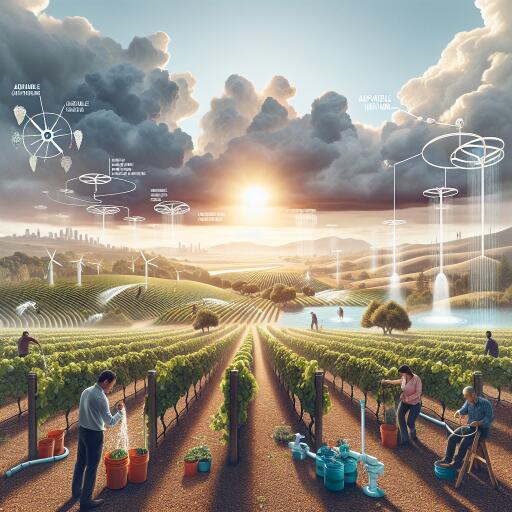
Sustainable Grape Farming Practices In The Era Of Climate Change
The ever-changing climate poses a complex array of challenges across various sectors, not least within the realm of grape farming. As traditional methods become strained under erratic weather conditions, rising temperatures, and a surge in pest populations, the imperative for evolution within viticulture has never been clearer.
Embracing Sustainability in Viticulture
The adoption of sustainable practices within grape farming is crucial not only for the environment but for the economic and social pillars of agriculture as well. These methods strive to mitigate the negative impacts farming may have on the environment, while also enhancing profitability and community welfare.
Fostering Soil Health
Integral to the success and sustainability of grape farming is the health of the soil. Innovative farmers are now turning towards methods like cover cropping, compost application, and reduced tillage to protect and enrich their soil. These techniques serve multiple purposes: they prevent soil erosion, improve water retention, and boost nutrient cycling, thereby increasing the vineyard’s resilience to climatic shifts.
Conserving Biodiversity
Biodiversity is the linchpin of a balanced vineyard ecosystem. Sustainable grape farming practices encourage the preservation and increase of biodiversity, which naturally curbs pest populations and reduces dependency on harmful pesticides. Implementing cover crops and maintaining natural hedgerows are just a couple of strategies that contribute to this goal by offering sanctuary to a host of beneficial species.
Climate Change Adaptation: An Imperative
The vagaries of climate change—be it through altered precipitation patterns, soaring temperatures, or the advent of extreme weather events—directly impact both the quantity and quality of grape yields. Adaptation is not merely a choice but a necessity to ensure the continued success and viability of the grape farming sector.
Moreover, the shifting sands of consumer preference towards environmentally conscious products underscore the importance of sustainable methods. The ability to adapt ensures not only the ecological sustainability of the farm but secures its market position and economic stability.
The Role of Technology in Adaptation
Technological advancements have thrown a lifeline to grape farmers, offering tools and techniques for better management and adaptation. From sophisticated irrigation systems that conserve water to drones that monitor crop health, technology is at the forefront of the sustainable farming revolution.
Particularly, precision irrigation technologies ensure water is delivered efficiently to the plants’ root zones, drastically reducing wastage and optimizing plant health.
Supporting Sustainable Transition
Farmers seeking to transition towards more sustainable operations have a wealth of resources at their disposal. Various organizations and programs provide educational resources, financial assistance, and certification programs aimed at fostering sustainable practices within the grape farming community.
Overcoming Challenges
Despite the myriad benefits of sustainable practices, barriers such as the cost of new technologies and a lack of knowledge can impede adoption. Addressing these challenges through increased access to information and funding can help bridge the gap, enabling more farmers to adopt these vital practices.
Looking Ahead
The challenges posed by climate change to grape farming are significant, but so too are the opportunities it presents for innovation and sustainable growth. By integrating sustainable practices, the grape farming industry can not only survive but thrive, safeguarding both the environment and the livelihoods of those it supports.
As the industry moves forward, embracing change and innovation will be the key to enduring success in an increasingly unpredictable climate.





Leave a Reply